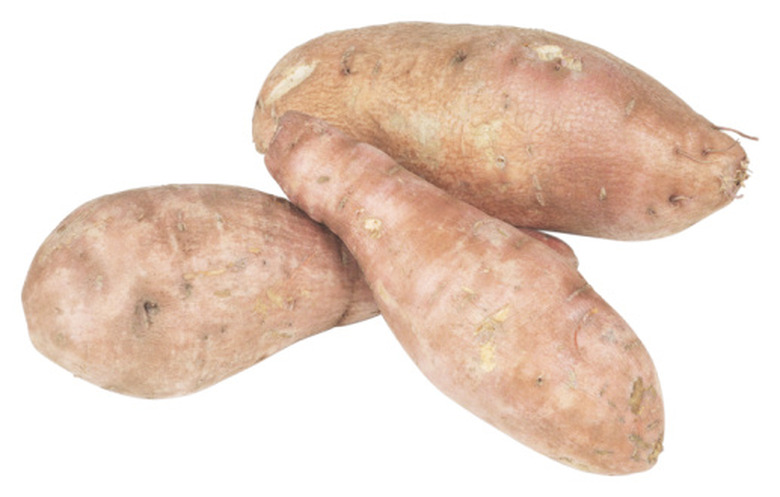Where Is Starch Stored In Plant Cells?
Some plants, such as potatoes and other tubers, and fruits like the banana and breadfruit, store starch for later use. This starch is stored by special organelles, or cell subunits, called amyloplasts.
Storage Process
Storage Process
Plant starch begins as glucose, a primary product of photosynthesis, or the process by which plants produce food from sunlight. Glucose is difficult for plants to store, however, and is converted either to sucrose or starch through a process called polymerization.
Amyloplasts
Amyloplasts
The polymerization and storage process in plants is performed by special cell parts—the amyloplasts. These non-pigmented organelles take glucose, turn it into starch and move it to another part of the cell, called the stroma.
Stroma
Stroma
The stroma is the colorless, spongy cell matrix that supports the plant cell itself. In tubers, rhizomes and other starch-storing plant organs, it also acts as a place to store food for later use. When the plant needs the energy in the starch, it converts the starch grains back into glucose.
Cite This Article
MLA
Palmer, G.D.. "Where Is Starch Stored In Plant Cells?" sciencing.com, https://www.sciencing.com/where-is-starch-stored-in-plant-cells-12428011/. 21 July 2017.
APA
Palmer, G.D.. (2017, July 21). Where Is Starch Stored In Plant Cells?. sciencing.com. Retrieved from https://www.sciencing.com/where-is-starch-stored-in-plant-cells-12428011/
Chicago
Palmer, G.D.. Where Is Starch Stored In Plant Cells? last modified March 24, 2022. https://www.sciencing.com/where-is-starch-stored-in-plant-cells-12428011/
